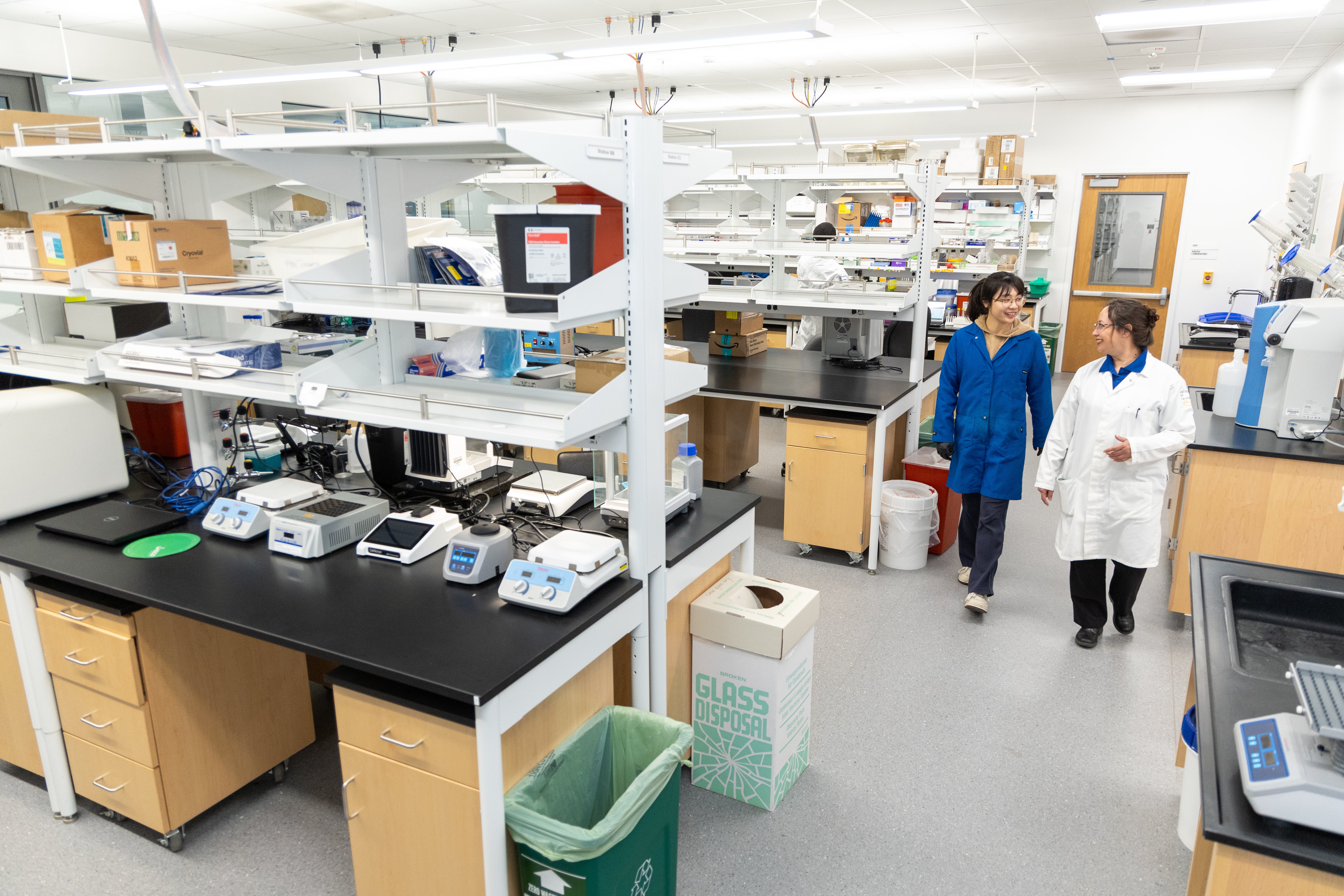
Life Sciences Innovation at UC Riverside

Advancing Life Sciences Innovation at UC Riverside
UC Riverside is a growing force in life sciences innovation, generating breakthroughs that address today’s most pressing global challenges in health, agriculture, and the environment. By combining world-class research, startup infrastructure, and commercialization pathways, UCR provides a launchpad for transformative ventures in the Inland Southern California region and beyond.
Leading the Charge in Life Science Innovation
World-Class Research in Critical Life Science Areas
UCR is a global leader in foundational life sciences research, particularly excelling in entomology, plant and animal sciences, and agricultural technology. Our faculty are developing groundbreaking solutions in areas like sustainable agriculture, food security, plant resilience, and pest control—offering a rich pipeline of licensable innovations for agtech and biotech companies.
Dedicated Ecosystem for Life Sciences Startups
UCR actively fosters a supportive environment for life sciences ventures. Our on-campus Life Sciences Incubator provides state-of-the-art wet labs, equipment, and collaborative workspaces. This, combined with access to UCR's specialized facilities and faculty expertise, offers an ideal launchpad for startups in biotech, medtech, and environmental innovation within the Inland Empire.
Comprehensive Entrepreneurial Support & Funding Pathways
The Office of Technology Partnerships and its Entrepreneurial Proof of Concept and Innovation Center (EPIC) offer robust support to translate research into real-world impact. This includes dedicated mentorship from experienced Entrepreneurs-in-Residence, specialized entrepreneurial training, and assistance in securing critical early-stage funding through NSF I-Corps, Proof of Concept grants, and SBIR/STTR support.

The Inland Empire's first wet lab incubator for biotech, agtech, medtech, and environmental innovation
Located on the first floor of UC Riverside’s Multidisciplinary Research Building, the Life Sciences Incubator is the Inland Empire’s only wet lab facility dedicated to biotech, medtech, agtech, and environmental innovation. It’s a fully equipped wet-lab and collaborative workspace empowering emerging life science ventures to grow locally—while benefiting from UCR’s research excellence and entrepreneurship ecosystem.
Our incubator offers:
-
State-of-the-art wet lab facilities, including cell and plant incubators, spectroscopic and chromatographic systems, microscopes, thermal cyclers, centrifuges, fume hoods, and more.
-
Private lab benches and office space, with furnished workspaces, personal storage, and high-speed internet access.
-
Conference and coworking areas, including meeting rooms, large‑screen displays, mailing address capabilities, and exclusive invitation‑only programming.
-
UCR Core Facility access, allowing resident ventures to leverage campus shared services at internal rates.
Support extends beyond workspace:
-
Mentorship from Entrepreneurs‑in‑Residence, plus direct engagement with EPIC SBDC advisors.
-
Funding access and programming, including grant opportunities, investor networks, and workshops via Opportunity Gateway and SBIR/STTR support.
-
Community and collaboration, with startups working across agtech, biotech, medtech, and climate solutions, alongside educational programming coordinated with regional partners.
In 2024 alone, our incubator supported 11 companies, helped secure $875K in grants, and supported 38 jobs in the region—a dynamic ecosystem that blends innovation with academic excellence.

Startup Success Stories
Xeno-Free Stem Cell Culture
Developed by former UCR Professor Noburu Sato, this innovation eliminates the use of animal- or human-derived components in the culture of human pluripotent stem cells. By using a chemically defined matrix and inhibiting myosin II to improve cell adhesion and survival, the platform provides a more controlled, contamination-free environment for stem cell growth—supporting scalable and reproducible cell therapy research.
Licensed in 2010, the technology has led to the development of multiple products in the induced pluripotent stem cell (iPSC) market and has generated over $850,000 in royalty revenue. Its adoption highlights UCR’s early leadership in enabling safer and more consistent stem cell manufacturing for therapeutic and research use.
Basilard BioTech – Celletto™ Nanoneedle Platform
Basilard BioTech, a startup spun out of UCR by Professor Masa Rao, is developing Celletto™, a precision nanomechanical gene delivery platform. Using nanoneedles to deliver genetic material non-virally into hundreds of millions of individual human cells, Celletto addresses major industry bottlenecks around scalability, nuclear delivery, and uniform poration—making it a breakthrough in cell and gene therapy manufacturing.
With $4.5M+ in seed funding, $500K from UCR’s Highlander Venture Fund, and support from the EPIC SBDC, Basilard has grown into a fully operational company. The platform’s impact is recognized in Nature Nanotechnology, positioning Basilard as a leader in next-generation biotech instrumentation.
Cadenza Bio – Multiple Sclerosis Therapeutics
Developed in part by UCR Professor Seema Tiwari-Woodruff, Cadenza Bio is advancing a novel class of compounds that promote remyelination and neuroprotection for the treatment of multiple sclerosis (MS). Unlike current MS treatments that only slow disease progression, Cadenza’s therapy targets the root causes—offering the potential for improved mobility and quality of life.
In 2023, the company raised $2.44M in seed funding to move its lead candidate, CAD-1, into non-clinical safety studies. The technology is backed by the NIH and the National MS Society, with strong potential to address other neurological and autoimmune conditions in future phases.

Featured Technologies
Explore a curated selection of high-potential life sciences innovations—available for licensing, startup formation, or investor collaboration.
-
Targefrin™ for Pancreatic Cancer
A novel therapeutic addressing one of the most lethal cancers, supported by an NIH SBIR Phase I grant. Currently advancing toward clinical studies and incubating at UCR’s Life Sciences Incubator.
-
Organ and Tissue Preservation
Technologies that “stop biological time” to preserve organ and tissue viability during transport, reducing ischemic damage and improving transplantation outcomes.
-
GENEWRITE: Precision CRISPR Fusion Protein
A next-generation gene-editing platform that enables the insertion of large genetic payloads with high precision, paving the way for advanced gene therapies.
-
Plants as Bioreactors
A sustainable molecular farming platform using nanoparticles to deliver genetic material into plants for the production of valuable compounds and diagnostics.
-
Bioresorbable Medical Devices
Innovative bioresorbable materials designed for healing and mobility restoration, including spinal patches that aid in the recovery of spinal cord injuries.

Your Life Sciences Technology Liaison
Grace Yee
Assistant Director
Technology Commercialization
(951) 827-2212
grace.yee@ucr.edu





